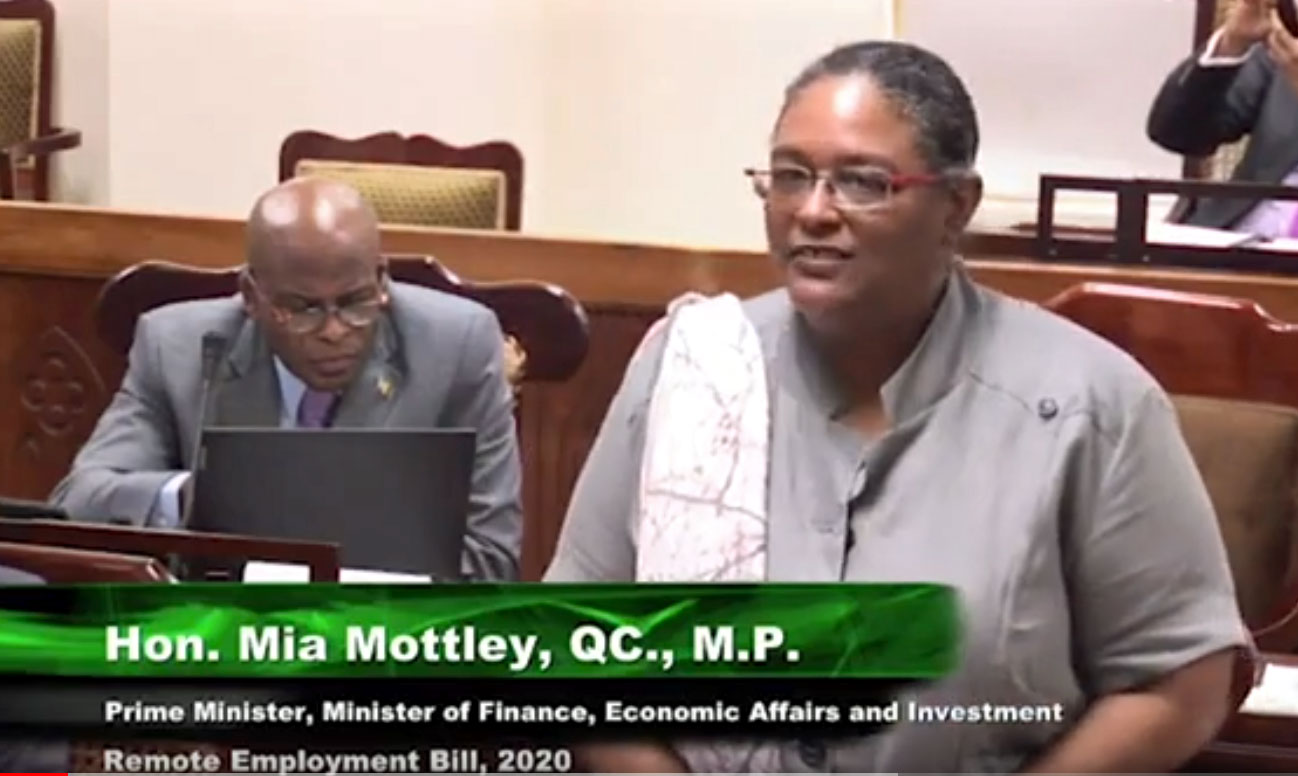Barbados allows anti-LGBTI bias in the workplace (1st of 2)
Colin Stewart is a 45-year journalism veteran living in Southern…
Controversy over the exclusion of same-sex couples during the launch of Barbados’s new Welcome Stamp program for visiting workers has focused attention on the problem of Barbados employers’ bias against LGBTI workers who are already here.
COMMENTARY
This is the first in a two-part series about the need to improve workplace protections for LGBTI people in Barbados.

By Alexa D.V. Hoffmann
Many LGBTI Barbadians, both those who live in Barbados (including myself) and those who have fled to other countries to seek asylum, have experienced mistreatment in the workplace because of who we are, how we look, or whom we share our lives with, or how we’re perceived in any of these regards.

Accounts range from interviewers asking applicants to consider the potential aversion that clients and customers may experience upon seeing them in the work environment (thus implying that they would scare off business), to employees panicking about the future of their jobs because they were photographed at LGBTI events on their day off or were seen in the company of a known LGBTI person, to my own experience where I was placed on “vacation” without notice and subsequently told never to return to the office where I worked as a legal assistant, simply because I informed my employer that I had legally changed my name and asked not to be referred to in the future by my “dead name”.
It’s obvious that LGBTI workers in Barbados are not adequately protected by the nation’s Employment RIghts Act (ERA).
The ERA, which passed in 2012, sought to protect workers from unfair dismissal, random slashing of work hours and convenient “redundancies” intended to fire one employee so that another preferred individual could be employed, among other problems which have plagued the Barbadian workforce.
In the ERA, under its provisions to protect workers from unfair dismissal, was a list of prohibited reasons for dismissal, which included situations such as whether the employee was a part of a trade union or participated in that union’s activities, that they had or were believed to have HIV/AIDS or some other life-threatening disease or illness, that they have or had a disability or other divergent ability, that they had a dependent family member (a child, or an adult with a disability), or for any reason relating to the employee’s race, colour, gender, age, marital status, religion, political opinion or affiliation, national extraction, social origin or indigenous origin, to name a few of the prohibited reasons for terminating an employee.
Despite the seemingly comprehensive nature of the ERA, there are still a number of pitfalls which, unless employees can familiarize themselves with the law or obtain proper legal counsel to educate them, an LGBTI worker can be placed at a disadvantage at first glance. While sexual orientation and gender identity are not expressly prohibited grounds for dismissal, there are still provisions in the ERA which make sure that, if an LGBTI person is to be fired, it must be related to their competence, their conduct, a case of redundancy (providing that the requirements and procedures for making a person redundant were met and carried out), or a situation where that person could not continue to hold the job without breaching the law (in other words, to employ that person would be illegal).
On the other hand, protection from discrimination is only available to an individual who has been employed for one year continuously, and therefore any individual, LGBTI or not, is left to walk a tight-rope and hope to stay on their employer’s good side, even if they are doing credit to their job.
Furthermore, the types of situations which the law says are not fair grounds for termination are not provided for at any point prior to being hired, therefore making LGBTI people fair game in the recruitment process to be turned down simply because of who they are or who they are perceived to be. These two shortfalls consequently place a great strain on LGBTI individuals looking to simply earn a sufficient living to not only take care of themselves and their loved ones, but also to properly contribute to the economic well-being of the country.
The second article in this series is “Barbados: Why delay LGBTI workplace bias law?”
Related articles:
- Barbados: Come for the beaches, stay for the life sentence (July 2020, 76crimes.com)
- A Barbados welcome for everyone but LGBTQ couples (July 2020, 76crimes.com)
- Three betrayals by three powerful Caribbean women (July 2020, 76crimes.com)
- This blog’s archive of articles by and about Alexa D.V. Hoffmann.
Barbadian trans advocate Alexa D. V. Hoffmann is the founding director of Trans Advocacy & Agitation Barbados (TAAB), chairwoman of the United Caribbean Trans Network (UCTRANS) and a member of the Latin American and Caribbean Network of Trans Persons (RedLacTrans). In 2018, she and two other Barbadian activists launched a legal challenge against the nation’s anti-sodomy law. She also manages the Rainbow Caribbean page on Facebook.




Barbados: Why delay LGBTI workplace bias law? (2nd of 2)